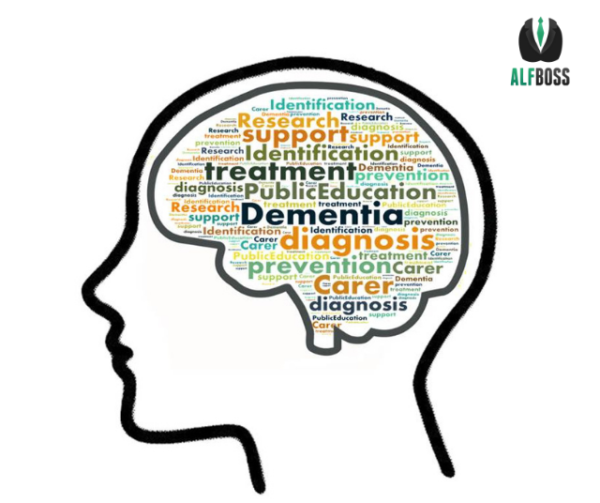
Experts suggest that there are currently somewhere around 5.5 million Americans of all ages who suffer from Dementia-related diseases. These conditions require deeply knowledgeable medical personnel due to the increased needs the person may need. Dementia and illnesses can cause loss of motor function, memory impairment and even at times cause negative behaviors that affect others around them. When deciding to have a specialized memory care program in your ALF the Agency for Healthcare
The administration has issued the following regulation for facilities to abide by:
429.178 Special care for persons with Alzheimer’s disease or other related disorders.—
(1) A facility that advertises that it provides special care for persons with Alzheimer’s disease or
other related disorders must meet the following standards of operation:
(a)1. If the facility has 17 or more residents, have an awake staff member on duty at all hours of the
day and night; or
2. If the facility has fewer than 17 residents, have an awake staff member on duty at all hours of the
day and night or have mechanisms in place to monitor and ensure the safety of the facility’s residents.
(b) Offer activities specifically designed for persons who are cognitively impaired.
(c) Have a physical environment that provides for the safety and welfare of the facility’s residents.
(d) Employ staff who have completed the training and continuing education required in subsection
(2).
(2)(a) An individual who is employed by a facility that provides special care for residents who have
Alzheimer’s disease or other related disorders, and those who has regular contact with such residents, must
complete up to 4 hours of initial dementia-specific training developed or approved by the department.
The training must be completed within 3 months after beginning employment and satisfy the core training requirements of s. 429.52(3)(g).
(b) A direct caregiver who is employed by a facility that provides special care for residents who have
Alzheimer’s disease or other related disorders and provides direct care to such residents must complete the required initial training and 4 additional hours of training developed or approved by the department. The training must be completed within 9 months after beginning employment and satisfy the core training requirements of s. 429.52(3)(g).
(c) An individual who is employed by a facility that provides special care for residents with
Alzheimer’s disease or other related disorders, but who only has incidental contact with such residents,
must be given, at a minimum, general information on interacting with individuals with Alzheimer’s
disease or other related disorders, within 3 months after beginning employment.
(3) In addition to the training required under subsection (2), a direct caregiver must participate in a
minimum of 4 contact hours of continuing education each calendar year. The continuing education must include one or more topics included in the dementia-specific training developed or approved by the department, in which the caregiver has not received previous training.
(4) Upon completing any training listed in subsection (2), the employee or direct caregiver shall be issued a certificate that includes the name of the training provider, the topic covered, and the date and signature of the training provider. The certificate is evidence of completion of training in the identified topic, and the employee or direct caregiver is not required to repeat training in that topic if the employee or direct caregiver changes employment to a different facility. The employee or direct caregiver must comply with other applicable continuing education requirements.
(5) The department, or its designee, shall approve the initial and continuing education courses and providers.
(6) The department shall keep a current list of providers who are approved to provide initial and continuing education for staff of facilities that provide special care for persons with Alzheimer’s disease or other related disorders.
(7) Any facility more than 90 percent of whose residents receive monthly optional supplementation payments is not required to pay for the training and education programs required under this section. A facility that has one or more such residents shall pay a reduced fee that is proportional to the percentage of such residents in the facility. A facility that does not have any residents who receive monthly optional supplementation payments must pay a reasonable fee, as established by the department, for such training and education programs.
(8) The department shall adopt rules to establish standards for trainers and training and to
implement this section.
Top Takeaways:
• (2)(a) An individual who is employed by a facility that provides special care for residents who have Alzheimer’s disease or other related disorders, and who has regular contact with such
residents, must complete up to 4 hours of initial dementia-specific training developed or approved by the department. The training must be completed within 3 months after
beginning employment and satisfy the core training requirements of s. 429.52(3)(g).
(b) A direct caregiver who is employed by a facility that provides special care for residents who have Alzheimer’s disease or other related disorders and provides direct care to such
residents must complete the required initial training and 4 additional hours of training developed or approved by the department. The training must be completed within 9 months
after beginning employment and satisfy the core training requirements of s. 429.52(3)(g). Surveyors will ensure to focus on areas of training, especially when it comes to the training records of
those held responsible for maintaining the care of residents who suffer from dementia-related diseases. You must have a system set up for any care staff that could possibly be assigned for the unit. It is recommended that you or your designee verify the completion of these training.
• (b) Offer activities specifically designed for persons who are cognitively impaired.
This Memory Care unit should not just be an area to hold residents suffering from a terrible illness. This unity shall be a community in itself with dignified meaning for residents who need specialized care. You should include services based upon each individual resident needs as well as having fruitful programming of activities